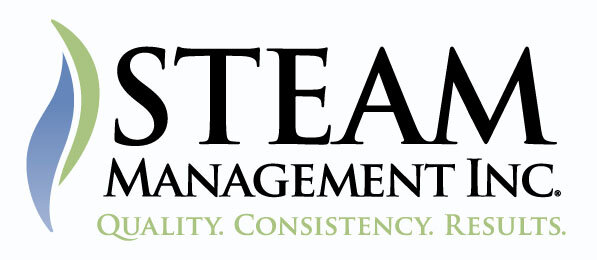Case Study
Smart Steam Management: How Data-Driven Insights are Transforming Boston Children’s Hospital’s Energy Efficiency
SMI Impact
The monitoring solution paid for itself in 14 months, with the cost offset by repairs to failed steam traps
The condensate heat recovery system generated 19,000 therms of natural gas savings and paid for itself within 3 months
Annual savings of $150,000 in steam usage and condensate charges
Reduction of carbon emissions by 520 metric tons annually, contributing to GHG emission reduction goals.
Steam Management, Inc. (SMI) was engaged by Boston Children’s Hospital to develop and deploy multiple energy conservation measures at the Boston campus and Waltham campus. Boston Children's Hospital is home to the world's largest pediatric research enterprise and the leading recipient of pediatric research funding from the National Institutes of Health. It serves as the primary pediatric teaching hospital for Harvard Medical School.
Customer
Solution Overview
Real-time Steam Trap Monitoring: Installed a cloud-based monitoring system to track steam trap performance, reducing maintenance costs and optimizing efficiency.
Steam Trap Audit: Implemented a comprehensive asset management program utilizing site-specific data collection tools across the entire campus. Developed a customized steam trap management program, including data migration into customer-specific software.
Condensate Heat Recovery System: Designed and installed a system to capture and reuse heat from condensate to preheat domestic hot water generators, improving energy efficiency.
Deaerator Replacement – Engineering, Procurement, and Commissioning: Provided 30%, 60%, and 100% mechanical design packages, supplied major equipment, and conducted commissioning services for the deaerator replacement and redesign project.
Condensate Flow Meters: Installed meters on both ends of an underground condensate line to confirm its integrity. The assessment revealed significant condensate losses, leading to substantial energy waste.
Conditions
Steam Management was engaged by BCH to perform various projects across two campuses. Our assessment revealed significant condensate losses at both locations, leading to substantial energy waste.
The Boston campus consists of 10 hospital and research buildings serviced by the Medical Area Total Energy Plant (MATEP). MATEP provides steam to the hospital buildings at 125 PSI. The hospital pays for steam on an Mlb basis and for condensate return as a percentage of steam purchased. The district energy plant does not require the hospital to return condensate at a specific temperature, presenting an opportunity to capture heat from the steam condensate before it is returned.
The Waltham campus generates steam in its own central power plant and distributes low-pressure steam throughout the campus. The boiler plant is aging, with three existing Cleaver-Brooks firetube boilers. The boiler feedwater deaerator had exceeded its useful life and required replacement. Additionally, the site lacked available drawings for its boiler plant, and no data was available on condensate return.
Solutions
Steam Management Inc. provided a comprehensive solution, including engineering design, project management, and turnkey installation. Our approach included implementing a sustainable, long-term steam efficiency strategy to ensure continuous service reliability.
Boston Campus Scopes
Steam Trap Program
The first step was to perform system-wide steam trap auditing for the purpose of determining distribution losses and efficiency opportunities and limit the loss of steam through the condensate return system. A campus-wide steam trap monitoring system was designed and deployed providing the customer with real-time data and access to steam trap functionality. The service includes quarterly review of the monitoring dashboard with the customer and job-ticket generation for steam trap repairs. Steam Management supports the customer’s effort of maintaining their steam trap repairs and offers the customer cost-based analysis of ongoing savings. In addition to providing the monitoring solution, SMI supports the customer’s asset management program by importing all data produced through auditing and monitoring systems into the customers’ site-specific software.
Key Actions:
Performed system-wide steam trap audit.
Integrated steam trap audit data into site-specific asset management software.
Installed and maintained ultrasonic steam trap monitoring system with integrated cellular LoRaWAN gateways.
Provide ongoing support with quarterly dashboard review.
Condensate Heat Recovery System
SMI developed a steam condensate heat recovery project to capture heat from condensate billed at volume and transfer the heat to pre-heat the non-domestic hot water generating equipment.
The project included a feasibility analysis including energy savings and project costs, 100% design engineering, turnkey installation, and commissioning.
Key Actions:
Provided 30%, 60%, and 100% design packages for customer review and approval.
Specified and procured major equipment.
Progressed through structured design phases with client feedback.
Oversaw installation utilizing customers preferred mechanical contractor.
Commissioned the system.
Waltham Campus
Deaerator
SMI provided 100% mechanical design, major equipment procurement, and commissioning for the deaerator replacement project. The existing boiler feedwater deaerator was slated for replacement due to age and indications of internal tray failures. SMI’s designed scope included a new spray-type deaerator to handle the hospital’s boiler feedwater demands. Additionally, SMI evaluated and recommended new boiler feedwater pumps equipped with Variable Frequency Drives (VFDs) for enhanced operational flexibility and energy efficiency. The installation was phased to minimize operational disruptions, utilizing existing infrastructure where feasible.
Key Actions
Served as the mechanical engineer of record for the project.
Conducted initial site survey for data collection.
Performed 3D LiDAR scanning of entire boiler plant.
Performed heat and mass balance to establish boiler plant operating cases.
Performed 30%, 60%, and 100% design for customer review and approval.
Specified and procured major equipment.
Supported project construction through commissioning.
Performed start-up and commissioning.
Ongoing Collaboration
Through our long-term Master Service Agreement (MSA), Boston Children’s Hospital continues to leverage SMI’s expertise for continuous improvement in steam system efficiency. The hospital continues to use the monitoring system’s real-time analytics to maintain optimal steam system performance, with ongoing bi-annual trap testing for remaining non-critical steam trap population. SMI performs regular system retro-commissioning and performance analysis to ensure continued efficiency. Boston Children’s Hospital benefits from a proactive, data-driven approach to steam system management, reducing costs and improving sustainability over time.
Schedule an Assessment of Your Facility
info@steammgt.com
1-800-731-0131
One Lincoln Street, Suite 2900
Boston, MA 02111




